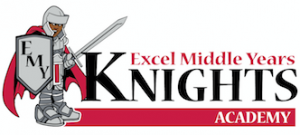The Office of Transition and Continuation Education (T&C) serves students who require or thrive in an environment other than a traditional educational setting. Learners may face many challenges in school, home, and/or community, which may increase vulnerability to school failure or dropout. T&C strives to deliver equitable access to innovative approaches to teaching and learning, which provide students the opportunity to meet promotion and graduation requirements, prepare for secondary and post-secondary experiences, and participate as productive members of their communities.
Welcome to the
Office of Transition & Continuation Education
What are Transition Programs?
The Alternative Education for Disruptive Youth (AEDY) Program provides a combination of intense, individual academic instruction and behavior modification counseling in an alternative setting to assist students in returning successfully to their regular classroom.
Even with high-quality supports, a small percentage of students may exhibit extreme behavior difficulties that require additional supports in an alternative placement. The AEDY Program was established in Pennsylvania in order to assist districts in helping this small group of students.
Understanding AEDY
Temporary
Placement in an AEDY Transition program is meant to be temporary, rather than a permanent school placement.
Behavior Issues
Students are only placed in an AEDY Transition program when severe or persistent behavioral problems require more intensive intervention services.
Additional Supports
AEDY Transition Programs are designed to provide additional behavioral supports and interventions, including counseling.
Similar Academics
Academic courses of student are similar to what students would receive at a traditional school.
Transition
The goal for each student in an AEDY Transition Program is to transition to a traditional school setting.
What AEDY Is Not
Long-term Placement
AEDY Transition Programs are temporary in nature, rather than a long-term placement to maintain disruptive students until graduation.
Special Education Program
AEDY Transition Programs are not special education programs for emotional support students and/or therapeutic support programs.
Credit Recovery
While AEDY Transition Programs are designed to provide similar academic courses and services as traditional school settings, they are not credit recovery programs.
Step 1: Prior Interventions
The school code required interventions prior to AEDY placement are to ensure, in part, that placements are appropriate and consistent for all students regardless of race, color, national origin, ancestry, creed, age, sex, disability, or sexual orientation.
Step 2: Referral
Students must meet specific criteria before it can be determined that placement in an AEDY program is appropriate. At this time, all Pre-Referral documentation is completed (AEDY Referral Form).
Step 3: Informal Hearing
Due process must be provided prior to placement including an informal hearing in accordance with PA School Code (22 Pa. Code §12.8(c)).
– Review relevant information regarding the disruptive behaviors
– Students right to provide a defense and answer accusations
– Determination if AEDY placement is warranted
Step Four: Transition
Transition Planning meetings are attended by the program staff, the student and a parent or guardian, and a Transition Liaison. There the student will receive a Personalized Learning Plan and will work with staff to transition into the AEDY program.
The Opportunity has two AEDY Transition Programs that serve students 6th to 12th grade. Once the referral process is began, a Transition Liaison will work with the student, family, and school community to support successful transition to and from an AEDY program to a traditional school setting.
Achieve Academy
Grades 6 – 12
1435 North 26th Street,
Philadelphia, PA 19121
Brewerytown
(215) 684-5080

Achieve Academy East
Grades 7 – 12
4224 North Front Street,
Philadelphia, PA 19140
Hunting Park
(215) 335-4764

What are Continuation Programs?
The Continuation Program is contracted-managed and focuses on supporting students who are struggling in traditional school settings and prepares students for successful transition into traditional/alternative programs, which lead to graduation and postsecondary success.
Key components of the program involve intensive acceleration in Reading and Mathematics, personalized education plans, character education, leadership training, and the Jobs for the Future common instructional framework.
Dropping Out
A student disengaged in a large, comprehensive school on the verge of dropping out.
Behind on Credits
A student who is behind but not eligible for an accelerated program due to their age or grade level.
Behavioral Support
A student with repeat low-level school violations, needing additional behavioral supports.
Returning to School
A student who stopped coming to school, returns, and needs academic intervention.
Discipline or Expulsion
Student transitioning from discipline or expulsion needing to sustain progress and success.
System Involvement
A student with multi-social system involvement being lost in the cracks at a large school.
Returning from Placement
Student returning from placement who wants a step-down environment before returning to a larger setting.
Returning from Virtual School
Student who withdraws for virtual school and falls behind, and wants to return to a brick and mortal school to catch up.
Parent Request
Student who’s parent requests for alternative placement for social or safety concerns at their traditional school.
To refer and enroll into a Continuation program, students must meet the following requirements:
Documentation
Prior documented interventions (RtII/MTSS; Evaluation)
Ruled out other options
Ruled out need for a special education evaluation or high level of care for behavioral health services.
Pending transfers
No pending disciplinary transfers or recent lateral transfers
Academic and social challenges
Student is struggling academically and socially.
SPED Documentation
Special education documents in compliance (only LS/ES; itinerant and supplemental)
Exhausted options
Student is not responding to interventions and could benefit from individualized support.
Parent Consent
Parental consent agreement
Step One: Submit Referral
School submits Referral Packet to alted@philasd.org
Step Two: Referral Review
Referrals are reviewed by the Opportunity Network Central Office and recommendations/Feedback and Next Steps are given back to the school by Transition Liaison (TL).
Step Three: Notify Families
Referring Schools notify families about the Continuation Referral opportunity.
Step Four: Next Steps
The Transition Liaison will contact families to gain interest, consent and schedule orientation.
Orientations
After it is determined that a student is eligible and are approved to enroll at the Continuation program, the Transition Liaison will schedule families for orientations held at the Continuation academy.
Note: Parent and student are required to attend an orientation.
At a Continuation School, the student can expect a success-oriented learning experience, a course of instruction designed to meet promotion and graduation standards, an active participation in educational decisions, and recognition of individual worth. The goal is to transition middle school students ready and focused for high school.
Stetson Middle School Continuation Academy
Grades 5 – 8
Only for current Stetson Middle School students.

Interested in learning more?
Our team is happy to help answer any questions you have about the Continuation Programs. To connect with us, please use the QR code to access the formal interest form. Once you’ve submitted the form, the Transition Liaison will reach out to you.
Do you have other questions?
First, please use the QR code above to access the Interest Form. If you have general questions about the Continuation Program at Excel Middle Years Academy, please use the contact information below:
440 N. Broad St. Suite 243
Philadelphia, PA 19130
Phone: 215-400-9040
Email: alted@philasd.org


